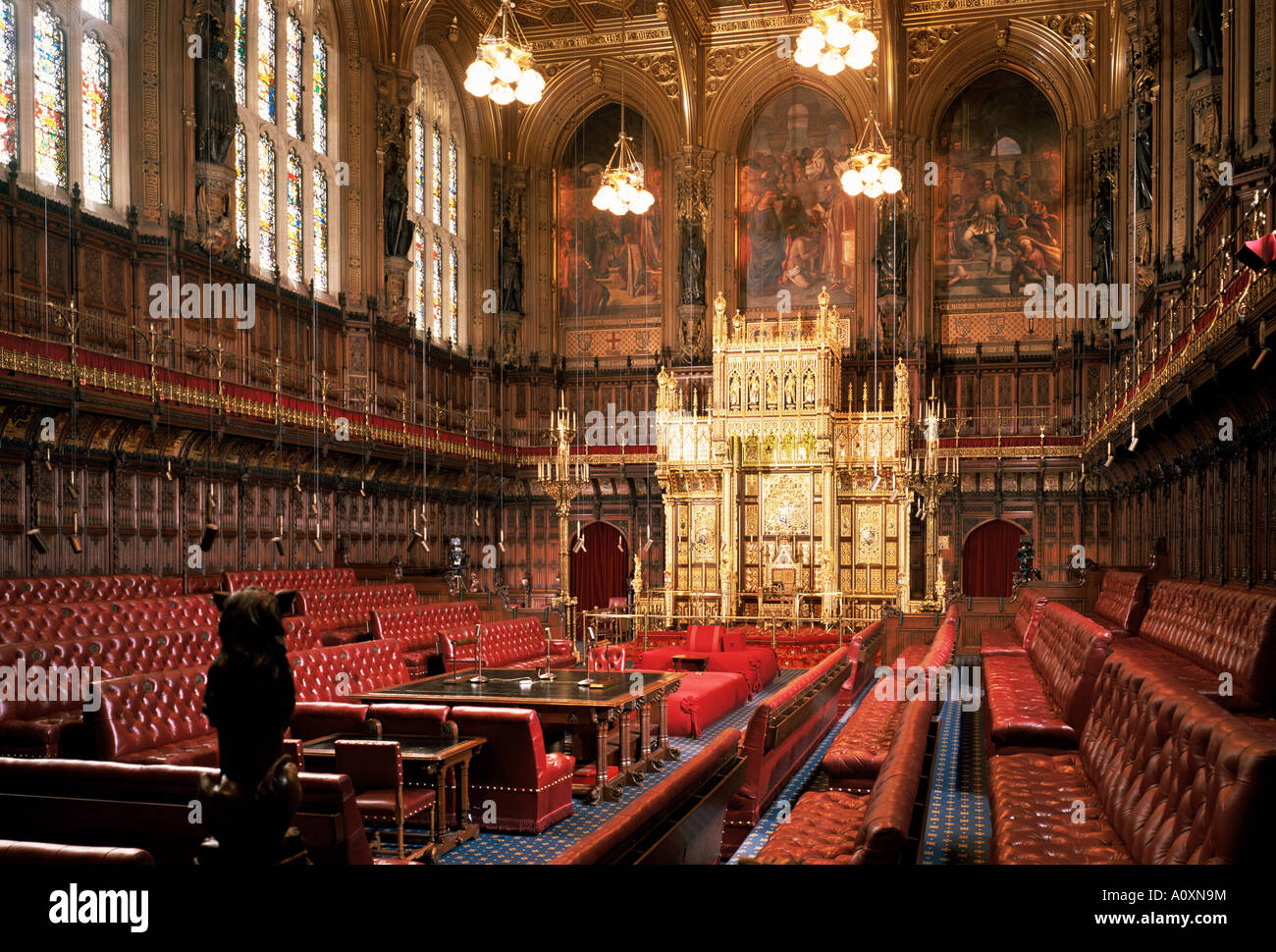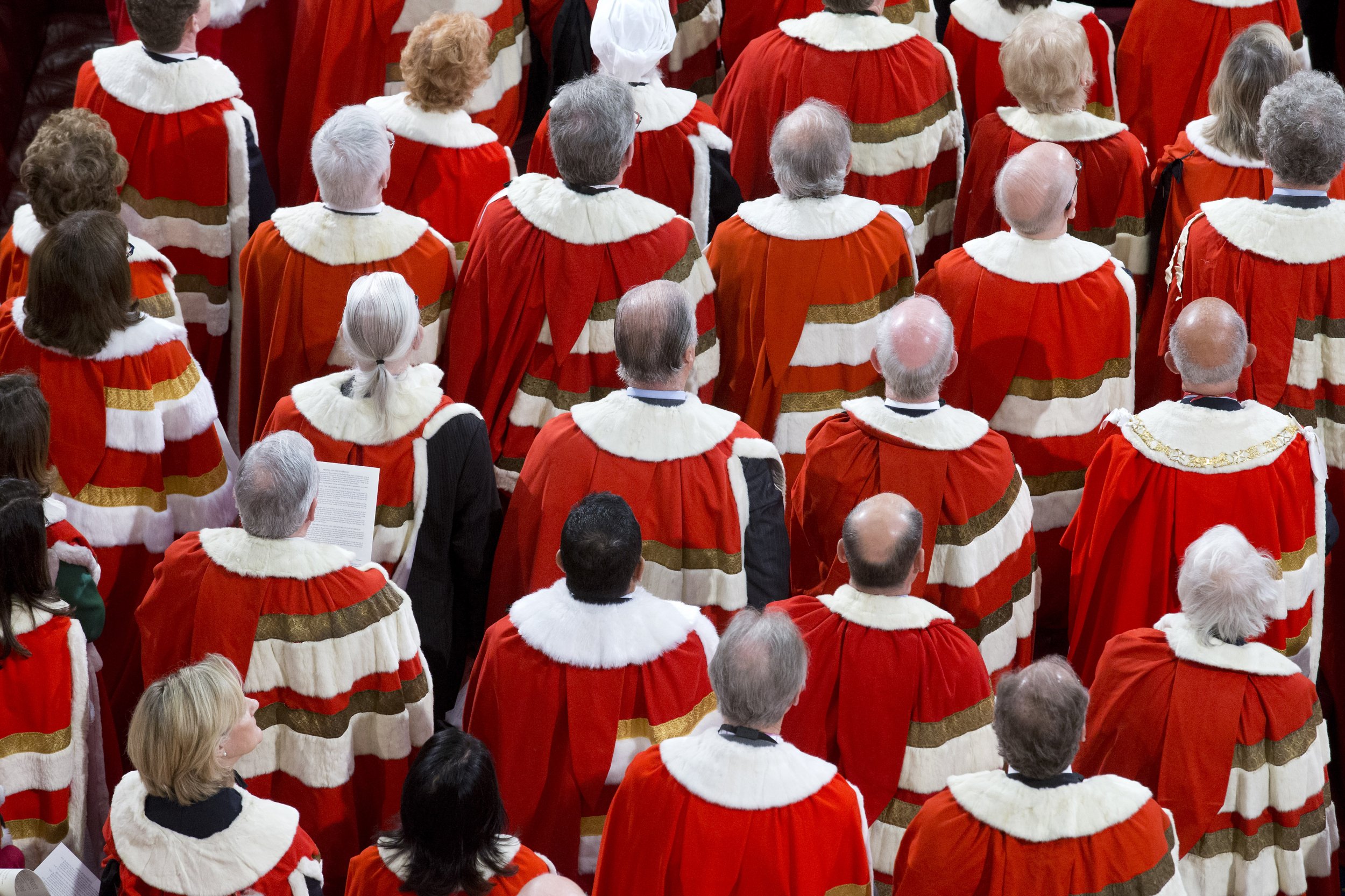U K. Pushes Through Rwanda Deportation Bill The New York Times
Table Of Content
- Number of members of the House of Lords in the UK 2024, by political party
- House of Lords: What is it and what could Labour replace it with?
- Rwanda bill clears parliament after peers abandon final battle over safety amendment – as it happened
- Stumbling blocks that could still impede Rwanda deportations
- Number of members of the House of Lords in the United Kingdom in 2024, by political party or grouping

They were selected by the Prime Minister of the day, but were formally appointed by the Sovereign. A Lord of Appeal in Ordinary had to retire at the age of 70, or, if his term was extended by the government, at the age of 75; after reaching such an age, the Law Lord could not hear any further cases in the House of Lords. Former Archbishops of Canterbury, having reverted to the status of a regular bishop but no longer diocesans, are invariably given life peerages and sit as Lords Temporal. The Constitutional Reform Act 2005 resulted in the creation of a separate Supreme Court of the United Kingdom, to which the judicial function of the House of Lords, and some of the judicial functions of the Judicial Committee of the Privy Council, were transferred.
Number of members of the House of Lords in the UK 2024, by political party
In addition, the office of Lord Chancellor was reformed by the act, removing his ability to act as both a government minister and a judge. This was motivated in part by concerns about the historical admixture of legislative, judicial, and executive power. Whilst some hereditary peers were at best apathetic, the Labour Party's clear commitments were not lost on Merlin Hanbury-Tracy, 7th Baron Sudeley, who for decades was considered an expert on the House of Lords. In December 1979 the Conservative Monday Club published his extensive paper entitled Lords Reform – Why tamper with the House of Lords? And in July 1980 The Monarchist carried another article by Sudeley entitled "Why Reform or Abolish the House of Lords?".[34] In 1990 he wrote a further booklet for the Monday Club entitled "The Preservation of the House of Lords".
House of Lords: What is it and what could Labour replace it with?
Former Lord Chancellors and holders of other high judicial office could also sit as Law Lords under the Appellate Jurisdiction Act, although in practice this right was only rarely exercised. Peers have gone far beyond their customary constitutional right to protest about a policy they do not like. They protest that their amendments are not intended to wreck the bill, but some peers clearly want to impede its passage until a new government arrives to withdraw it. One amendment to safeguard Afghan interpreters from deportation might be thought acceptable, except that ministers regard it as an exploitable loophole. However, the House of Lords does play a role in government accountability, through its questioning of cabinet ministers and the formation of special committees to address important matters of state. Its members are now mostly appointees, not peers who inherit their seats in the House of Lords.
Rwanda bill clears parliament after peers abandon final battle over safety amendment – as it happened
These provisions, however, only apply to public bills that originate in the House of Commons, and cannot have the effect of extending a parliamentary term beyond five years. A further restriction is a constitutional convention known as the Salisbury Convention, which means that the House of Lords does not oppose legislation promised in the Government's election manifesto. Before the new peers were created, however, the Lords who opposed the bill admitted defeat and abstained from the vote, allowing the passage of the bill.
Resigned under the Constitutional Reform and Governance Act 2010

The Gentleman or Lady Usher of the Black Rod is also an officer of the House; they take their title from the symbol of their office, a black rod. Black Rod (as the Gentleman/Lady Usher is normally known) is responsible for ceremonial arrangements, is in charge of the House's doorkeepers, and may (upon the order of the House) take action to end disorder or disturbance in the Chamber. Black Rod also holds the office of Serjeant-at-Arms of the House of Lords, and in this capacity attends upon the Lord Speaker. The Gentleman or Lady Usher of the Black Rod's duties may be delegated to the Yeoman Usher of the Black Rod or to the Assistant Serjeant-at-Arms. The twelve Law Lords did not all hear every case; rather, after World War II cases were heard by panels known as Appellate Committees, each of which normally consisted of five members (selected by the Senior Lord). An Appellate Committee hearing an important case could consist of more than five members.
This episode was highly adversarial, but more commonly members of the Lords propose changes which the government accepts, in order to improve the substance of legislation. The Lord Speaker’s committee on the size of the house, chaired by Lord Burns, set out proposals to reduce the size of the chamber by encouraging retirements and asking party leaders to exercise restraint in appointments. Most recently, in 2022, the Brown Commission, proposed a fully elected ‘Assembly of Nations and Regions’ and the Labour Party is expected to include Lords reform in its next manifesto. The Constitutional Reform Act 2005, separated the judiciary from parliament, removing the Lords’ judicial remit and passing it to the Supreme Court of the UK. In 2014, reforms were passed to enable peers to retire or resign in an effort to reduce the chamber’s size. Since November 2000, some 673 peerages have been created, with most being political appointments.
Once the division concludes, the Tellers provide the results thereof to the presiding officer, who then announces them to the House. In the House of Lords, members need not seek the recognition of the presiding officer before speaking, as is done in the House of Commons. If two or more Lords simultaneously rise to speak, the House decides which one is to be heard by acclamation, or, if necessary, by voting on a motion.
Ministers in the House of Lords: Role and accountability to Parliament - House of Lords Library
Ministers in the House of Lords: Role and accountability to Parliament.
Posted: Wed, 03 Apr 2024 07:00:00 GMT [source]
The Stuart Kings
A principal effect of the act has thus been to discourage the House of Lords from opposing bills strongly supported by the House of Commons. The Salisbury convention of 1945, which prevents the Lords from rejecting a bill at second reading (the principal stage at which parliamentary bills are debated) if it fulfills any pledge in the government’s election manifesto, has further constrained the Lords’ power. The lord speaker may be replaced as presiding officer by one of his or her deputies. The chairman of committees, the principal deputy chairman of committees, and several chairmen are all deputies to the lord speaker, and are all appointed by the House of Lords itself at the beginning of each session.
Beyond the dark arts: what next for the Whips’ Office?
The House of Lords is equipped to perform this ‘revising’ role due to the wide range of expertise and experiences of its members, and its independence of thought—a large proportion of its members have no political affiliation. Some members are former politicians, while others are expert in business, education, science, and other public policy areas. Of the around 800 members, most have been appointed as 'life peers' by the Queen on advice of consecutive Prime Minsters; the rest comprise 92 hereditary peers and 26 Church of England Archbishops and Bishops. Holders of Scottish and Irish peerages were not always permitted to sit in the Lords. When Scotland united with England to form Great Britain in 1707, it was provided that the Scottish hereditary peers would only be able to elect 16 Scottish representative peers to sit in the House of Lords; the term of a representative was to extend until the next general election.
The Lords has the power to delay a piece of legislation passed by the House of Commons for up to one year but cannot block a bill altogether. It is also unable to amend or initiate any ‘money bills’, which are bills that the Speaker of the Commons considers related to national taxation, public money or loans. While there are different routes to joining the Lords, peers, unlike MPs in the Commons, are not elected by the public but are either appointed (formally by the monarch on the advice of the prime minister) or, in a small number of cases, sit in the Lords ‘by right’. Despite these limitations, the House of Lords plays a significant role in Parliament. Its most useful functions are the revision of bills that the House of Commons has not formulated in sufficient detail and the first hearing of noncontroversial bills that are then able, with a minimum of debate, to pass through the House of Commons. It is further argued by some observers that the House of Lords serves a valuable function by providing a national forum of debate free from the constraints of party discipline.
As it does not hold a majority, the government is defeated in the House of Lords quite often, generally on amendments to bills. Constitution Unit research shows that in recent years just under half of defeats have gone on to be accepted by the House of Commons, leaving a lasting impact on policy. A high-profile example under the Labour government occurred in 2006, when the House of Lords repeatedly voted against compulsory ID cards. The government chose to delay the implementation of ID cards until after the 2010 election. That election resulted in a Conservative-Liberal Democrat coalition government, which went on to scrap ID cards.
From 1603 to 1660, the country was mired in a drawn-out civil war and, for a time, military leader Oliver Cromwell assumed power under the title Lord Protector. For much of the 17th century, the United Kingdom experienced a great deal of change and political turmoil. Wentworth, a Puritan, later clashed with Elizabeth I over issues related to freedom of religion during his time as an M.P., and he was jailed for these acts as well. It was this persecution that led the Puritans to leave England for the New World in the 1600s, helping to settle the 13 colonies that eventually became the United States.
With the passage of the Constitutional Reform Act 2005, the post of Lord Speaker was created, a position to which a peer is elected by the House and subsequently appointed by the Crown. The first Lord Speaker, elected on 4 May 2006, was Helene Hayman, Baroness Hayman, a former Labour peer. He was succeeded as Lord Speaker by John McFall, Lord McFall of Alcluith, who is the incumbent Lord Speaker. Most Cabinet ministers are from the House of Commons rather than the House of Lords.
Another officer of the body is the Leader of the House of Lords, a peer selected by the Prime Minister. The Leader of the House is responsible for steering Government bills through the House of Lords, and is a member of the Cabinet. The Leader also advises the House on proper procedure when necessary, but such advice is merely informal, rather than official and binding. A Deputy Leader is also appointed by the Prime Minister, and takes the place of an absent or unavailable leader. Until 2009, the Lords Temporal also included the Lords of Appeal in Ordinary, more commonly known as Law Lords, a group of individuals appointed to the House of Lords so that they could exercise its judicial functions. Lords of Appeal in Ordinary were first appointed under the Appellate Jurisdiction Act 1876.
Comments
Post a Comment